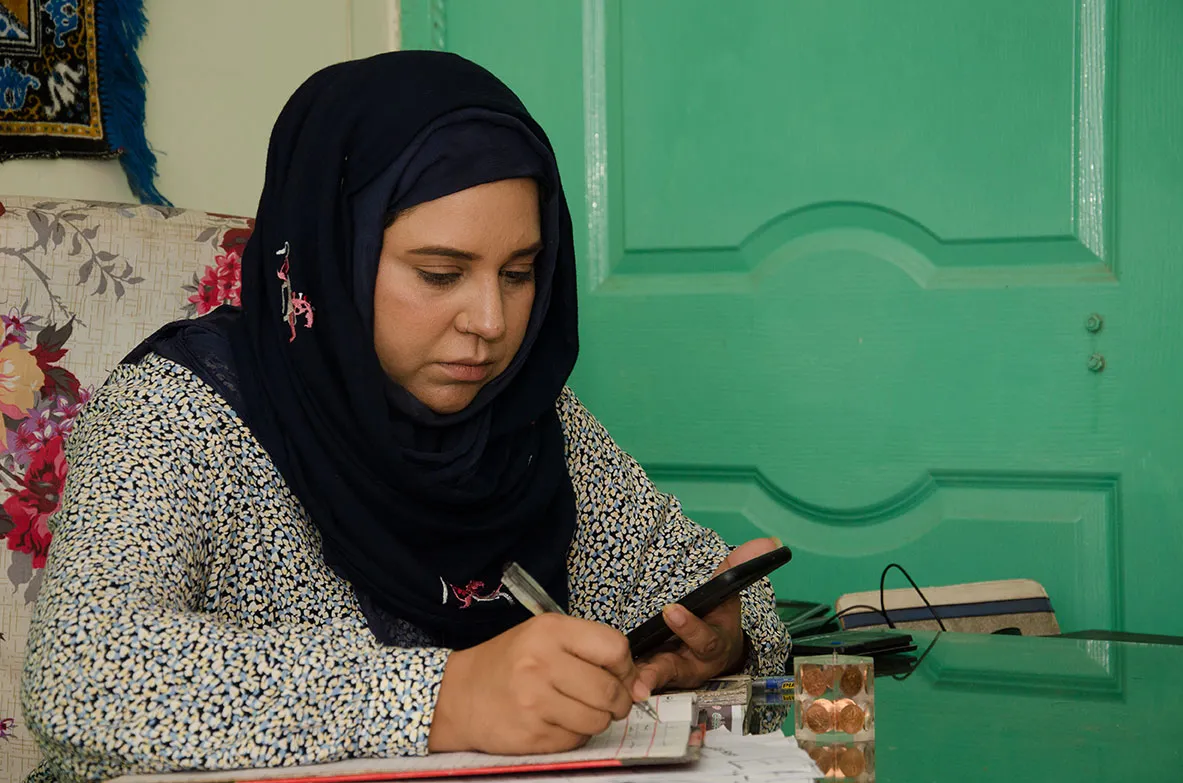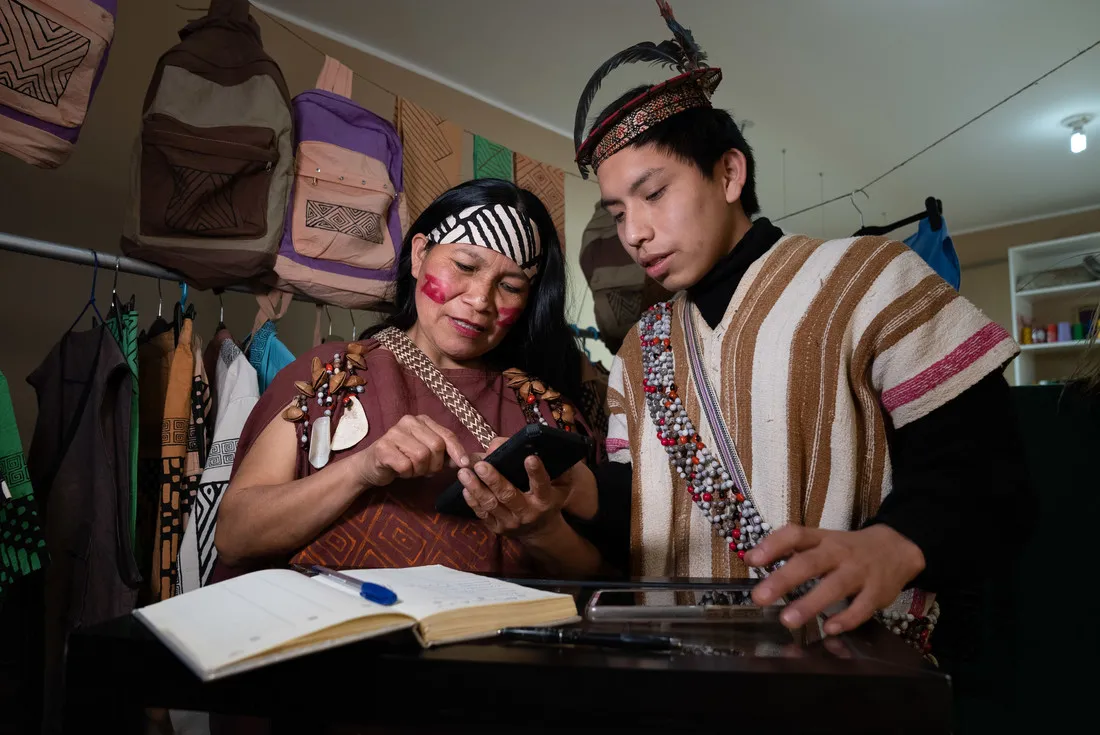Just because a woman has received one remittance through a mobile money account, does it mean that she is digitally financially included? To really include women in this accelerated race to digitalization, which was sparked by the pandemic, we need to understand where they are on their digital journey and the barriers they face, including the social norms that support or challenge her. Our experience, through CARE’s Ignite program, which we launched just as the pandemic took hold, is that we need to design for those different realities across the globe, to avoid further exclusion. Oftentimes, this means that in-person and online activities need to work together to make progress and ensure inclusivity.
Our focus on women-led micro and small enterprises (MSEs) shows that access to and usage of digital financial services is only one part of their overall journey to digitalization. While infrastructure and access are challenges, we must also consider digitalization barriers which are unique to women, including time poverty, restricted mobility, limited access to education, household and childcare responsibilities and much more. Addressing these issues is critical to supporting women-led MSEs on a journey to digitalization that grows their businesses.
For Mery Salazar, who runs an artisan business celebrating her Amazonian heritage in Peru, learning how to use a financial education training app that we adapted with our local financial partner, required support and encouragement not only from our team, but also from her more digitally literate children. For Hina Butt, who runs a hostel for girls in Pakistan, it was a case of transferring her existing social media skills that she was using in her personal life, to benefit her business, and onboarding her onto mobile money wallets to be able to receive payments from afar. For Nguyen Thi Hien in Vietnam, who runs a food business distributing fermented pork, she needed to expand her e-commerce channels to extend her sales globally.
Through our Ignite program, which operates in Vietnam, Peru, and Pakistan, and is supported by the Mastercard Center for Inclusive Growth, we are working in three vastly different markets and contexts that have inherently wide-ranging digital infrastructures. As can be seen with Mery, Hina, and Hien, they have extremely mixed levels of digital literacy, skills, and access, which our program has had to reflect.
Using existing technology to simplify the journey
In Vietnam, we have worked with our partner, VPBank, a large commercial bank, to implement e-KYC (Electronic Know Your Customer) technology to verify customers’ identities. In this context, highly digitally capable women, are accessing business loans of up to 20,000 USD (still considered MSEs by the bank). These women wanted to be able to access loans, tools and skills building through digital channels, saving them time, as they continue to carry time pressures from household and childcare. Designing women-focused loans with a one-time e-KYC upload has given them a convenient way to regularly access products and services.
In Peru, we identified that many women entrepreneurs did not have the identity documents required to open a bank account and take out a loan, we therefore worked with our financial partner Financiera Confianza to fast-track facial recognition as a solution. Our co-designed loan product, Emprendiendo Mujer, tailored for women-led micro and small businesses, incorporates this biometric technology. This enables loan officers to easily issue loans and women to apply for them, overcoming a major barrier to access. All elements of this product are digital, from the evaluation through to the financial education training, and the disbursement through to the additional cancer insurance policy – which we incorporated at the request of the women entrepreneurs.
In Pakistan, where there are lower levels of digital capability and financial literacy, especially for women, informal digital channels like Facebook and WhatsApp dominate the scene and are a free way of promoting and selling products and services for MSEs. In an ideal world, MSEs can both promote their products and services and receive payments through the same channels. Despite these integrated functionalities being available, the requirements to use credit cards or have a bank account, often present barriers for many women. Our solution to these problems has been to combine WhatsApp for personal use with widely used mobile money wallets. We have formed sector-specific and location-specific WhatsApp groups through which women entrepreneurs can buy and sell, even through voice notes for less literate women, while also introducing them to mobile money wallets, which are popular in Pakistan. This approach supports women entrepreneurs to slowly build their digital capabilities in a familiar environment, while recognizing some of the barriers they face.



